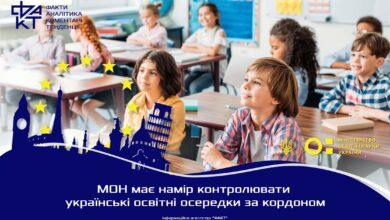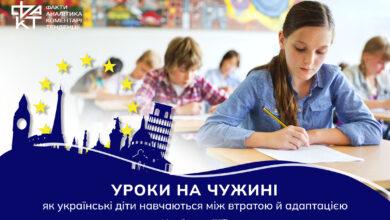MES impresses with innovations: gender audit during the war

The Ministry of Education and Science of Ukraine once again surprised the public by announcing a gender audit in its structure. During the war, the education system of Ukraine faces numerous serious challenges that require significant efforts and resources. Against this background, the innovation raises many questions: why exactly now, when on the agenda are more urgent problems, such as ensuring the safety of students and teachers, organizing distance learning and supporting the educational process in wartime, did they raise the issue of gender audit? Are such initiatives really timely? And most importantly, aren’t there more important issues in the field of education that need immediate resolution?
What is the idea of gender audit
The Ministry of Education and Science of Ukraine (MES) has announced the conduct of a gender audit within the framework of the National Strategy for the Creation of a Barrier-Free Space in Ukraine, which provides for equal opportunities for women and men in the field of education and science. The Ministry explains that a gender audit is a process that allows organizations to create a working environment that is favorable and productive for all employees, regardless of gender. According to the MES, which employs more than 300 people, this audit will provide an opportunity to:
- support all employees in achieving the best results;
- to improve the policy of gender equality in the field of education;
- determine effective practices of work organization;
- identify and eliminate obstacles to the realization of employees’ potential;
- introduce an individual approach to personnel management.
The audit process will include surveys, individual interviews, seminars, as well as analysis of documents and the external and internal space of the Ministry. The entire process will be confidential to ensure honest and open responses from participants. Its implementation is part of Ukraine’s large-scale efforts to establish gender equality, which is an important element of democratic development and corresponds to European values. The project is carried out with the support of the United Nations Population Fund (UNFPA) and the NGO EdCamp Ukraine.
According to recent trends and European values, gender equality in all spheres of life is a key aspect of building a fair and inclusive society. As evidenced by the experience of democratic countries, the development of state gender policy should originate from the educational environment. An important component in the direction of establishing gender parity is the school and educational institutions of all levels, which have a considerable influence on the formation of the personality and its gender socialization. That is why, for the effective implementation of gender policy, the Ministry of Education and Culture focuses on disseminating information among society about overcoming gender barriers and stereotypes, as well as providing access to knowledge on gender issues. The ministry believes that ensuring equal access to quality education for all citizens, regardless of gender, breaking the biased division into professions only for men or only for women – all this is an important task facing state institutions now.
Taking into account the fact that Ukraine has received the status of a candidate for membership in the European Union and is implementing an active policy regarding the future accession to NATO, today it is relevant to continue reforms aimed at fulfilling the requirements without which accession to the EU and the North Atlantic Alliance is impossible. And, first of all, most of the requirements are related to significant changes in gender aspects in society, including in the educational sphere. According to experts, for Ukraine, despite gender equality in access to education for both sexes, raising gender culture in the educational environment still remains an urgent problem. There is still a problem of low awareness of gender issues and a high level of gender stereotypes among educators.
In order to promote equal opportunities for women and men in the field of education and science, the MES plans to conduct its own gender audit within the framework of the National Strategy for the Creation of a Barrier-Free Space in Ukraine, created at the initiative of First Lady Olena Zelenska.
Foreign experience in the implementation of gender equality policy
Gender equality in education is a priority for many countries of the world. Each state develops and implements its own strategies to ensure equal opportunities for all citizens, regardless of gender, and to break established gender stereotypes.
For according to the annual World Economic Forum (WEF), the top countries that narrowed the gender gap included:
- In the first place is Iceland – 93.5%;
- second place was taken by Finland – 87.5%;
- Norway took third place – 87.5%;
- Sweden took the fifth position – 81.6%;
- Germany is on the seventh step of the rating;
- on the ninth – Ireland;
- Spain completes the top ten.
“New Zealand is the best-performing country outside of Europe, coming in fourth place (with 83.5%), while Nicaragua is sixth and Namibia eighth”, – the WEF report notes.
Ukraine ranks 63rd in this ranking. The gender gap in our country was overcome by 72%. And this means that we should pay attention to the experience of foreign countries that have succeeded in reducing the gender gap, in order to improve our own indicator.
Iceland has already taken the first position in the rating 15 times in a row. The country is known for its progressive gender equality policies. Such a high indicator is ensured by a number of legislative initiatives, programs and practices aimed at ensuring equal opportunities for all citizens, regardless of gender. Gender issues are included in the educational programs of the country at absolutely all levels. Teachers undergo special training on gender equality issues, which helps to avoid gender stereotypes in education and the educational process. In schools in Iceland, there is a practice of conducting educational projects aimed at raising awareness of gender issues. The government provides many services to support families, including free access to kindergartens and health care. Iceland is known for its generous parental leave system, which is shared equally between both parents.
In the Scandinavian countries, a special program to attract girls to science, technology and engineering is widespread. The focus of gender education and upbringing in Sweden is the family. In the country, parents are granted a paid leave of 480 days in connection with the birth or adoption of a child. 60 days of leave are fixed individually for each parent. In Sweden, the practice of creating groups for parents is widespread. About 60% of Swedish men attend such groups, which makes it possible to completely eliminate the stereotype that only a woman should be involved in raising a child. In order to attract creative and proactive women to public life, the Women’s National School operates in the country. There, women of all ages are given the opportunity to choose study programs, courses, and trainings depending on their needs, in order to better integrate and feel more confident in Swedish society. Also in Sweden, the “Gender in School” program operates, which provides educational resources to teachers and introduces them to the issues of gender issues.
In German schools, the gender component is included in the content of various educational subjects, in particular, natural science, German language, social science, physical education, computer technology. The country also has the so-called gender mainstreaming with the use of incentive tactics for higher education institutions. Two systems are implemented there:
- equal treatment policy (concerns gender inequality);
- diversity policy (refers to discrimination based on ethnic and social origin, health status, sexual orientation).
For the implementation of these policies, each district receives certain grants, funding and conducting lectures and meetings with professors on issues of gender equality.
Thus, on the basis of the European University Viadrina (EUU) in Frankfurt, a special department operates that manages all available gender initiatives:
- mentoring programs where female academics help younger female academics at various levels: students, doctoral students, postdoctoral fellows and researchers;
- trainings on the use of sensitive gender vocabulary;
- holding feminist festivals and conferences;
- creation of consultation centers on education without barriers and equal opportunities;
- holding women’s sports events.
The expediency of a gender audit in the Ministry of Education and Culture during the war
Probably, the idea of a gender audit and solving the relevant issues is useful in itself. However, the war creates unprecedented challenges for the education system. Schools and universities are forced to constantly change their approaches to education, to provide access to quality education in conditions of destruction and lack of stable Internet. In such conditions, conducting a gender audit looks like focusing attention on non-priority issues. Gender audit is an important component of ensuring equality, but now it seems that this issue can wait. Previously, the education system functioned without it, and, although not ideal, without catastrophic consequences. Why has it now become so important that it requires immediate attention?
More than 300 employees work at the Ministry of Education and Culture, and hundreds of thousands of them work in the education system itself. Therefore, it is quite logical to solve the problems of the participants of the educational process, and not officials. In addition, conducting a gender audit requires certain financial and human resources. In times of war, every penny and every worker must work for victory and the maintenance of vital systems such as education.
Of course, supporters of a gender audit can make arguments in favor of its implementation. For example, that equality between men and women is a fundamental value that cannot be postponed, even in times of crisis. However, do these arguments have sufficient weight compared to the pressing problems facing the education system? It is their solution at this difficult time for the country that will help keep the education system in working condition, ensure the future for children and youth, and prepare the foundation for further reforms, including gender equality, already after the victory.





